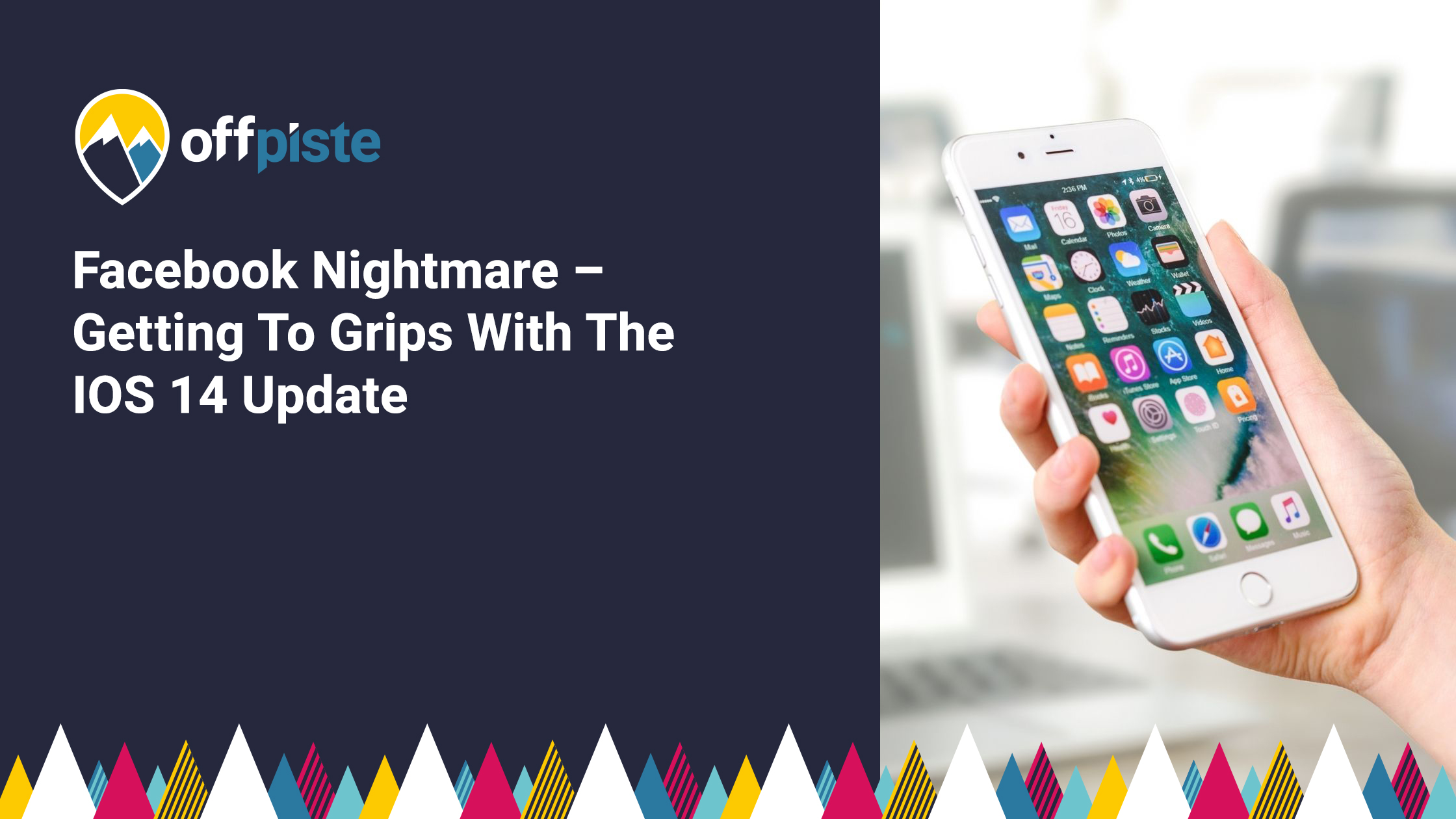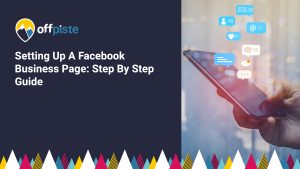Don’t you just love technology? We do. We love Apple and we love Facebook. What we don’t love is when changes to one causes problems with the other – and for those running ad campaigns on Facebook, that’s exactly what Apple’s recent iOS 14 update has done.
Here’s the low down. Privacy concerns have forced Apple into a situation where all the apps in its App Store now have to ask their users for permission to track them. What this means for advertisers on Facebook is that their ability to accurately track ad campaigns and conversions will be affected as not every Apple user will grant permission.
In essence, the move is similar to the Cookie Law that websites now have to abide by. However, there is a subtle but significant difference. On websites, you need to actively opt-out of tracking, which, because it’s a bit of a hassle, most people don’t bother to do. With the iOS 14 update, users have to actively opt-in, which makes fewer people inclined to accept.
What Does That Mean For Advertisers?
What’s the impact? Today, when advertisers set up a conversions campaign in Facebook, the platform’s sophisticated algorithm uses the data it receives to optimise the campaign and drive more of the actions that marketers want. If Facebook users choose not to be tracked, the highly useful tracking pixel used by the algorithm becomes much less effective. This means everything from inaccurate conversion reporting to the skewing of retargeting campaigns. How, for example, can personalised ads and remarketing be effectively targeted if you have no browsing history?
In an age where customer experience is the new battleground over which brands compete, personalisation has become a vital component of any advertising campaign. The upshot of the iOS update is that brands will have fewer targeting options and will be less able to personalise ads, making the customer experiences they provide less attractive.
With almost 80% of users accessing Facebook solely on smartphones, the impact of Apple’s update is likely to have significant repercussions – not just for individual advertisers but for Facebook itself. If advertisers turn their back on the platform, Zuckerberg’s mighty revenue stream is under threat. Facebook made over $84 billion from ad revenue in 2020!
Attempting to quantify the impact of the update is even more challenging for advertisers. There’s no real clarity on how many of that 80% own iPhones; nor on how many of those phones are new enough to run iOS 14. Of those that do, we have no knowledge of how many have opted out of tracking. Users are increasingly pulled in both directions – many like the personalisation that giving tracking permission provides but dislike the way that their data is used. Neither Apple nor Facebook is likely to make any public announcement of how many individuals have opted either way.
Having this knowledge could, in some ways, help marketers adjust their figures. If we knew 20% of users had disappeared from the tracking radar, we could take those into account when reckoning the effectiveness of a campaign. As it stands, this is out of the question.
The response from Facebook is to criticise Apple’s decision, saying that it will negatively affect small businesses. In reality, Facebook is more worried about the exodus of the big organisations that can put giant-sized holes in its bank balance. That said, the impact on small businesses is likely to be significant. With smaller budgets to work with, SMBs need to focus on ROI and this means targeting is, from an economy of scale perspective, more important to them.
How Do We Get Around This?
As for the future, it’s unlikely that Apple is going to revoke its decision. While privacy concerns give the move an ethical foundation, the company also get a competitive advantage. The update doesn’t affect ad tracking on Apple’s own platform which makes it more attractive to marketers.
To deal with this, there are some workarounds that marketers can apply. For example, they can exclude iPhones and iPads from campaigns that have conversion targets. Alternatively, they may need to bring different types of data into the equation, combining Facebook and Google Analytics in order to find out whether a sale or conversion was the result of someone clicking on a Facebook ad and, if so, from which campaign or ad set the click came from. There are other, more complicated workarounds too, but these require a great deal of effort from the advertiser and need the user to provide information voluntarily to them.
Is this the end of Facebook advertising? With knocking on 3 billion active users, it is too big of an audience for advertisers to ignore. While the Apple update has created a few bumps in the road, we’re pretty sure that a technological solution will soon provide the answer. After all, Google is scrapping the use of third-party cookies completely on Chrome, saying that “advertisers don’t need to track individual consumers across the web to get the performance benefits of digital advertising.” Obviously, to make a statement like this, there must be something new in the pipeline!
If you need help with your social media advertising or want an experienced team to manage your campaigns, get in touch if you think we can help.





